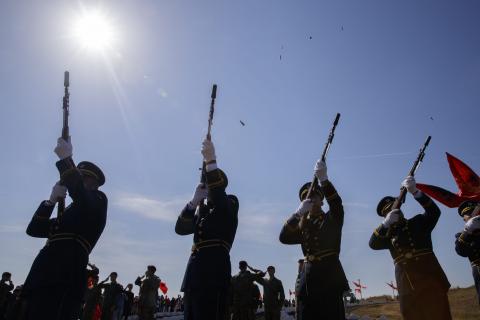Ethnocentric Memorials Dominate Kosovo’s War Remembrance Culture

On April 27 each year, Kosovo commemorates its national day of missing persons, but families of the wartime disappeared and Kosovo Albanian and Serb officials always commemorate separately.
Jasmina Zivkovic, whose father Paun went missing in September 1999 in the eastern municiplaity of Ferizaj/Urosevac, marks the day with other relatives of Serbs who disappeared.
But the attendance of politicians at such commemorations often means that in a country where ethnic divisions remain strong and the legacy of war looms large, remembrance is highly politiciased.
"Unfortunately, politicians still use commemorative activities for their own agenda. Usually speeches that you hear from them are full of blame for the other side and the spreading of hate," Zivkovic told BIRN.
"I think it represents the marginalisation and exclusion from the public domain of important initiatives dedicated to preserving the memory of all victims, regardless of ethnic or national origin," she added.
For more than two decades, ethnic Albanians and Serbs in Kosovo have built separate memorials for their fallen heroes and civilian victims of the 1998-99 war and its aftermath.
War monuments and memorials have proliferated around Kosovo since the conflict ended, but it is hard to establish for certain what has been spent by municipalities on commemorative sites.
Based on the records of Kosovo's Agency for Managing Memorials, a total 1,166 memorials have been built by families, municipalities and veterans' associations. These include memorial complexes, headstones, statues, busts, war heritage sites and memorial plaques.
Bislim Zogaj, head of Kosovo's Agency for Managing Memorials, said that memorials sponsored by the state are only dedicated to...
- Log in to post comments
